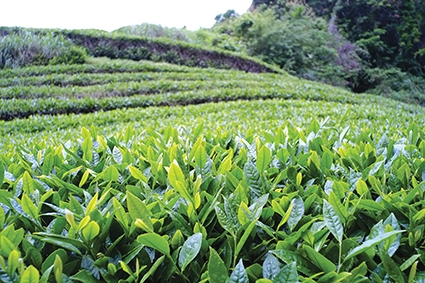Over 3 Million GEL Allocated for Tea Rehabilitation in 2016
TBILISI - Last year Georgia’s government announced plans to rehabilitate Georgian tea plantations under the program Georgian Tea which was to launch in 2016. Currently, active preparatory works are being carried out in this direction.
According to Deputy Director of Agricultural Projects Management Agency, Mamuka Kvaratskhelia, the program is limited in terms of agricultural timing but the process is on-going.
“We have tea plantations in Georgia. It was about 64 thousand hectares in the Soviet era yet today the majority of the land is totally devastated and other crops are grown there,” Kvaratskhelia told Business Press News. “This program serves to utilize existing potential. The government is creating a tool which can make this sector interesting for business operators, since they will be the ones to develop it in the future.”
The government will encourage those who decide to invest their own money in this field by offering 25-year lease agreements with a symbolic price of 50 GEL on state-owned lands with tea plantations.
The project is being carried out in several stages. The State Budget has allocated 3.5 million GEL for the first stage, in 2016. This budget will be sufficient to rehabilitate an expected two thousand hectares.
According to Kvaratskhelia, the rehabilitation period depends on the true state of the tea plantation. The maximum time is three years, but in some cases it may take just one year to yield results.
At the first stage tea plantations must be selected and their potential assessed- whether or not rehabilitation is possible. If so, the second task is to determine if the planned works in a calculated time period can provide a high-quality product. And, as Kvaratskhelia stated, the Ministry of Agriculture research center has the potential to determine these factors.
“The program doesn’t provide for naming target countries to export tea to. To bring any type of good to Europe, appropriate certification is necessary. Entering Europe is not possible without standardization and certification. [Which is why] we are working in this direction, too,” Kvaratskhelia said.
Tea produced within the program will be of necessity high quality and of a standard controlled by a scientific body.
Ana Akhalaia











